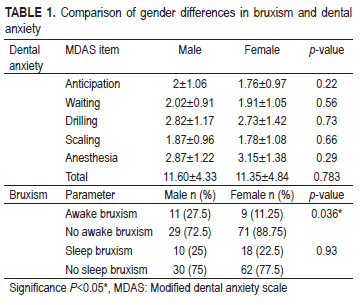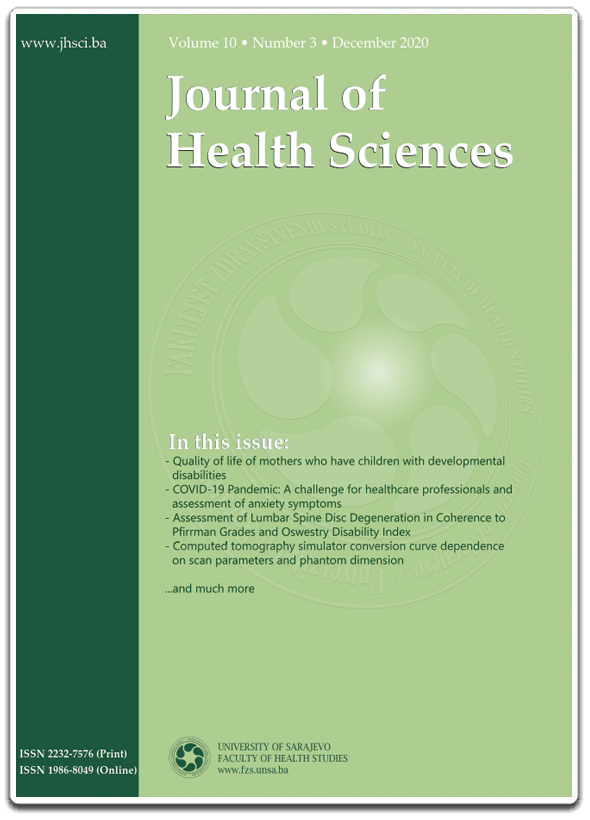The relationship between personality traits, dental anxiety, and self-reported bruxism among health professional students: A cross-sectional study
DOI:
https://doi.org/10.17532/jhsci.2023.2203Keywords:
Dental anxiety, personality traits, neuroticism, self-reported bruxismAbstract
Introduction: Dental anxiety proves to be the hurdle for dental care, making self-awareness among the population more crucial. Similarly, bruxism has also been reported to be due to stress, but the pathophysiology has not been clearly understood. The current research aims to explore the association of personality traits with bruxism and dental anxiety among health professional students.
Methods: A total of 120 dental and medical students were included in our study. All the participants received three different questionnaires: The “modified dental anxiety scale” questionnaire to measure dental anxiety, the “modified bruxism assessment questionnaire” to assess the presence of bruxism, and “the big five inventory” to identify the personality trait. The collected data were statistically evaluated with significance at p < 0.05.
Results: Comparison of dental anxiety among professional students showed significantly (p < 0.001) higher anxiety among medical than dental students. Analyzing the prevalence of bruxism revealed awake bruxism to be significantly (p < 0.05) higher in males than females. On analyzing the relation between personality traits and dental anxiety, a positive correlation was seen between the neuroticism type of personality (r = 0.193, p < 0.05) and dental anxiety, especially in females.
Conclusion: The prevalence of self-reported awake bruxism was higher among male students, indicating the necessity for more investigation to ascertain the influence of various psychological factors. The correlation between dental anxiety and neuroticism type of personality trait points out the importance of identifying these individuals in a clinical setting and implementing strategies to reduce anxiety and enhance motivation for treatment.
Downloads

Downloads
Published
License
Copyright (c) 2023 Smitha Sammith Shetty, Shibani Shetty, B. V. Swapna

This work is licensed under a Creative Commons Attribution 4.0 International License.










